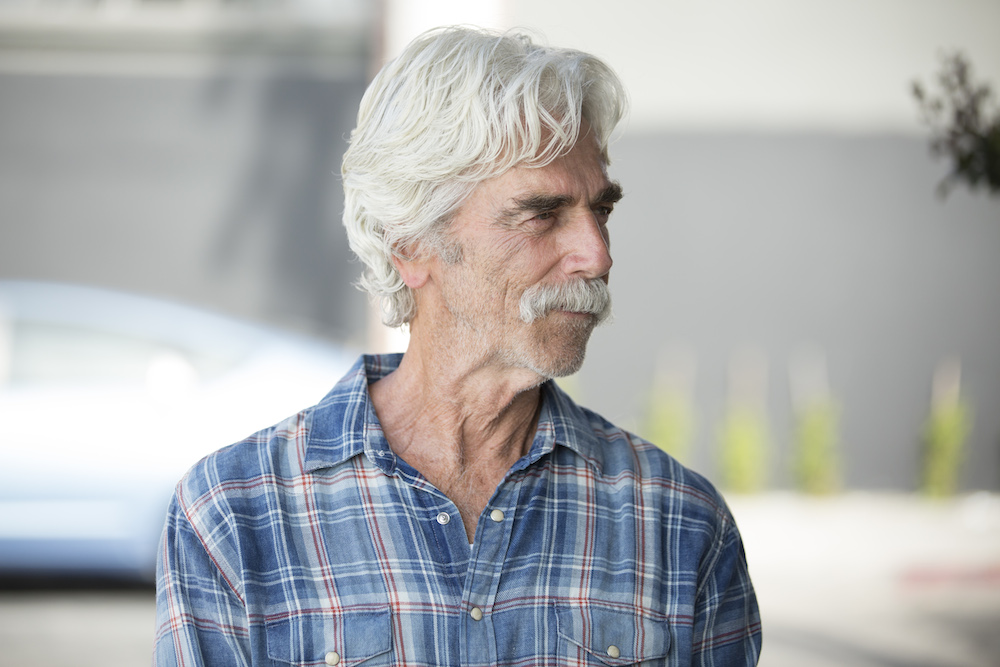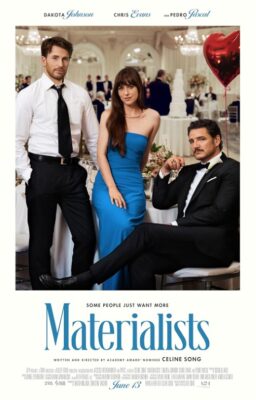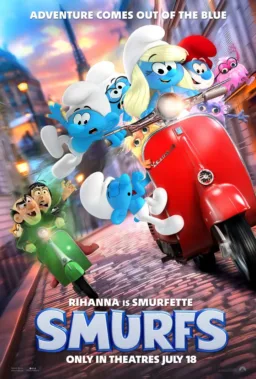Writer/director/editor Brett Haley was so taken with veteran actor Sam Elliott’s performance in “I’ll See You in My Dreams,” he built his next film around Elliott as actor and icon. In “The Hero,” Elliott plays an aging movie star named Lee, like a pair of jeans, and known, as Elliott is, for playing cowboys. In an interview with RogerEbert.com, Elliott talked about what he does and does not share with Lee and about working with his real-life and on-screen co-star, Katharine Ross (“The Graduate”), who plays Lee’s ex-wife.
We see Lee recording a voice-over for a barbecue sauce commercial and auditioning for a part. Is he a good actor?
I think he is. I think he’s conducted his career absolutely the wrong way. But there were a couple of scenes in the film, like where he’s doing the audition scene with his buddy Jeremy, when they’re rehearsing, you see that he’s a good actor there. It was important to see that he was a good actor there, because the next time you see him acting, he’s not very good.

The scene where you practice for the audition with your friend played by Nick Offerman is one of the film’s highlights.
Yeah, that ended up being a really kind of a special moment. Nothing was planned beyond thinking that I wanted it to be good, and it just turned into something that really nobody expected, I don’t think, that morning. And it was a lot of fun. I love working with Nick. I think it’s pretty obvious on screen. He gave me what I needed, and vice versa. It’s sure fun when that works out that way.
I know that even though he wrote the script, Brett Haley loves to ask his actors to try a lot of different approaches to each scene. Did you do that for the audition rehearsal scene?
No. Not then. But that’s one of the things that I definitely love about Brett. I think once he feels like he has what he came to do that day then he just lets us go, and he says, “Let’s try something else.” Or, “Why don’t you do one you want to do?”
That’s a very smart way for a director to operate. He really doesn’t know what’s going to come. And I really don’t know what’s going to come to me when we operate that way. And when you’re confident enough to know that you’ve got a good take in the can, so to speak – although there’s no film can anymore on these movies — once you’ve done that, then the rest of it is just gravy. And often you hit gold. I think you just get something that you just absolutely don’t expect. And it’s a great way to work, to be open like that. And really it’s just a form of being collaborative in its best sense. Film is a great medium to be collaborative in.
In the film, your wife Katharine Ross plays Lee’s ex-wife. Did the two of you discuss what the history of your characters was?
No, that’s way too deep for Katharine or me. ‘Cause none of that stuff shows. I know actors go down that road. I know a lot of actors that I really respect that would go down that road. But I don’t think that’s really important for me. I think what’s important is having the correct words, and being able to commit to those words. And being honest. That to me is what’s most important, being honest.
It is intriguing that Brett Haley for the second time in a row has made a film about characters who are decades older than he is.
Brett just has this sense. I don’t know what it is about him. I don’t know anything about what it is or where all that was born with him. This need or this desire to tell stories about people that are twice his age, and to tell stories in a manner that I’ve never heard them told before.
Brett has a rare optimism. And I think he has a good chance of becoming one of the preeminent directors in this business. He’s astounding. I mean he writes, he directs, he edits. He just has a vision. He has a filmmaker’s vision. A clear vision. And it seems limitless at this point.

Your character in this movie ingests a number of different substances. How did you approach that? Does Lee have different highs from different drugs?
I just kinda threw it all in the same mix. Being high is being high, I think. That was one of the things that I thought was such a big stretch when I read the script. This thing is on some level biographical, because it was born out of a lot of conversations with Brett and myself. But there are four areas that are absolutely totally unfounded, in terms of me. One of them is the drug use. One of them is the divorce from the wife. I’m still married to Katharine after 33 years, and 39 years being together. The other one is I dearly love my daughter. I see her daily. And there’s a fourth one. I don’t have cancer.
I think the difference, the primary difference apart from those four is that Lee really just fucked up his life. He made the wrong choices. He put career ahead of his daughter. When she talks to him, she says, “You’re always gone. Or I was always aware that you were about to go somewhere.” That’s not somebody that wanted to be a great dad. I would imagine the same with the wife relationship. And he ended up being a pothead, and he went down the tube. Getting this cancer diagnosis really sends him on that quest to try to mop things up, clean up the mess he’s made along the way in his life, before it comes to an end. And the wonderful thing is that he comes across this beautiful girl that he sparks to. And she sparks to him. A lot of people will look at that and think, “Oh that’s bullshit.” But not me. I think that we earn that, earn that relationship in spades. There is nothing gratuitous about it. We all have that vision of an older guy with a young girl, and a big rock on her finger or whatever. And vice versa maybe, with an older woman and a young guy. But who’s to say that two people can’t be attracted to each other – regardless of age or anything?
It’s not just about sex. I don’t think that was the attraction. Maybe there’s a physical attraction, certainly. I mean Laura Prepon is a knockout. And she’s particularly a knockout in this film. I mean, who could not be attracted to her? But there was so much more to that relationship than that. Sometimes young people can bring out an energy, particularly a young person maybe that you’ve just met that you don’t know. They bring out such joy, and such freedom in a person. That’s been my experience in some of the people or the encounters that I’ve had over the years. They just seem unencumbered by the burdens of the day.
At the beginning of the film we see Lee doing the audio for a barbecue sauce commercial. He clearly hates it, but he does a great job, saying the line over and over. What is in his mind when he’s selling barbecue sauce?
You’ve got to deliver. I’ve been in those booths before, where they wanted one more, one more, one more. That’s your function in there, to give them one more. That’s a very strange game, that whole thing.
I just always think about the sound. Any time I’ve ever gone to do voiceovers myself, I’ve certainly used that. I’d listen to myself saying it over and over and over and over again and try to find what I think is the right zone, so to speak. And then if there’s a little variation in there as well, try that. But I think really the trick is becoming as familiar and as comfortable about hearing the sound of your own voice as you can before you get in there.
What’s the best advice you ever got about acting?
Don’t take it too serious. And Ben Johnson told me something that I have applied. He was an old cowboy actor that I’ve worked with a number of times. He won an Academy Award. Ben told me when I was working on a show called “The Sacketts,” “I may not be a very good actor, but nobody can play Ben Johnson like I can.” And I took that to heart. I feel that about myself. I may not be a very good actor, but I don’t think anybody can play me better than I can.












